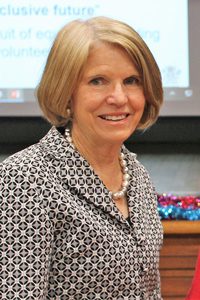
Glynis Schultz, Executive Director
Tuesday 13 February marks the 16th anniversary National Apology to the Stolen Generations by then Prime Minister Kevin Rudd. In 2008, Prime Minister Rudd made the formal apology on behalf of the Federal Government, to the Stolen Generations; the Aboriginal and Torres Strait Islander children who were forcibly removed from their families and communities by successive colonial and Australian governments.
In this landmark speech, the Government called on all Australians to reflect on the past actions that form an important part of our history. The apology included a resolve to embrace new solutions to enduring problems where old approaches had failed, and a future based on mutual respect and mutual responsibility.
I would like to take this opportunity to acknowledge and pay my respects to the First Nations Stolen Generation and their families, and our staff members who have lived experience.
Glynis Schultz
Executive Director
Community and Oral Health
National Apology Day is a day of healing and to reflect on the Stolen Generations and those who were forcibly removed from their families. It is a time to remember the policies that enabled the forced removal causing immense pain and suffering that is still being experienced by generations.
Community and Oral Health are committed to ensure appropriate recognition, acknowledgment and celebrations of significant cultural events. Actions for this are being included in our Second Innovate Reconciliation Action Plan (RAP), currently in development with an expected launch date set during Reconciliation Week 27 May – 3 June 2024. The RAP will work hand in hand with our response towards the Metro North Health Equity agenda that will ensure shared respect and to facilitate future opportunities for reconciliation.
Finally, established COH Health Equity Working Groups will drive the design, implementation, monitoring and reporting of COH’s response towards the health equity agenda and improve health outcomes for our Aboriginal and Torres Strait Islander consumers through healthcare that is culturally appropriate and specific to the individual needs of Aboriginal and Torres Strait Islander people. This will also include actions that are specific, measurable and reportable that will further enhance our RAP commitments.
I would like to respectfully acknowledge and pay my deepest respect to all Aboriginal and Torres Strait Islander people who were subjected to the laws, policies and impacts of the Stolen Generation and those impacted today.
Paul Drahm
Manager, Aboriginal and Torres Strait Islander Health
Community and Oral Health